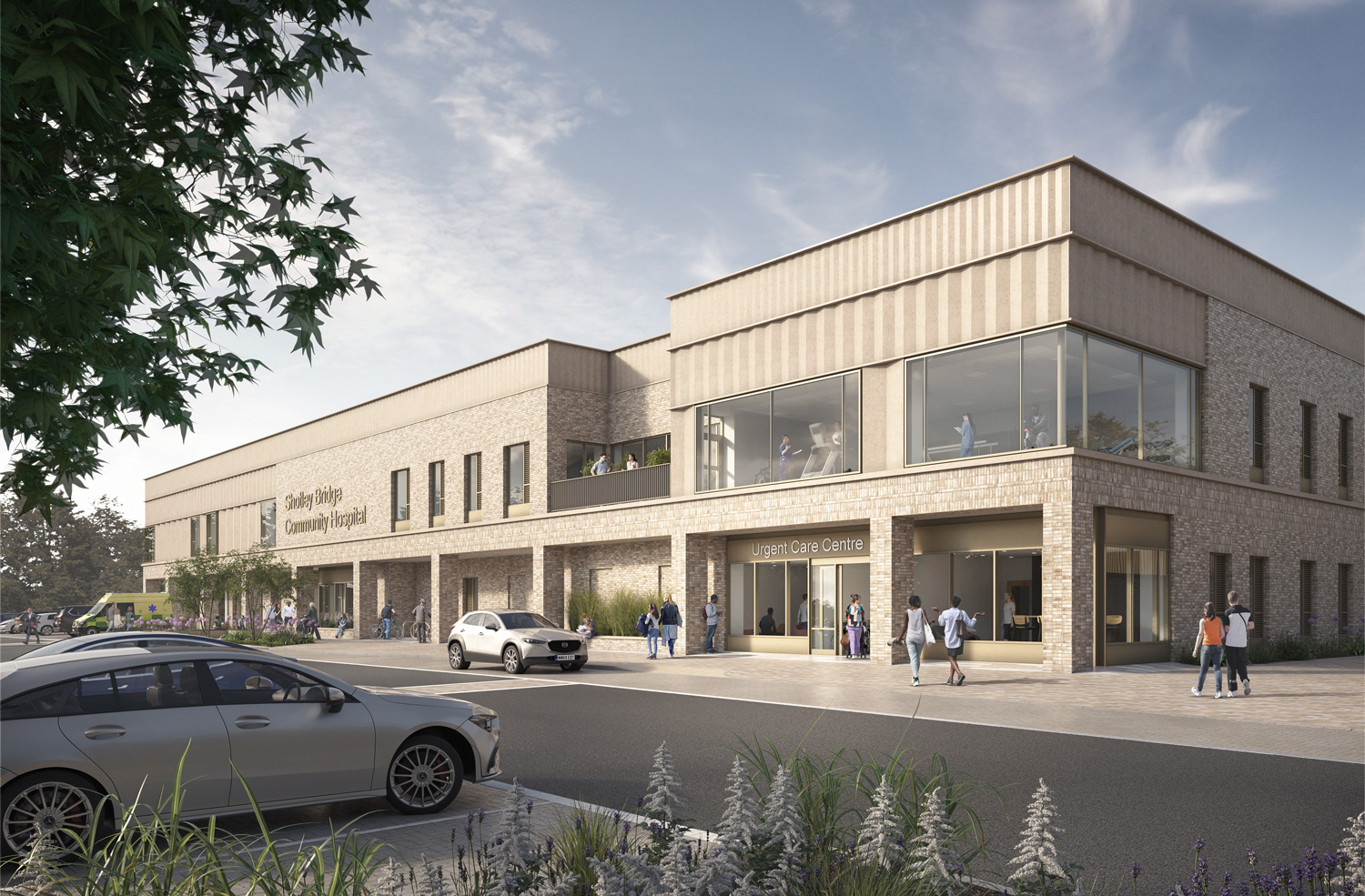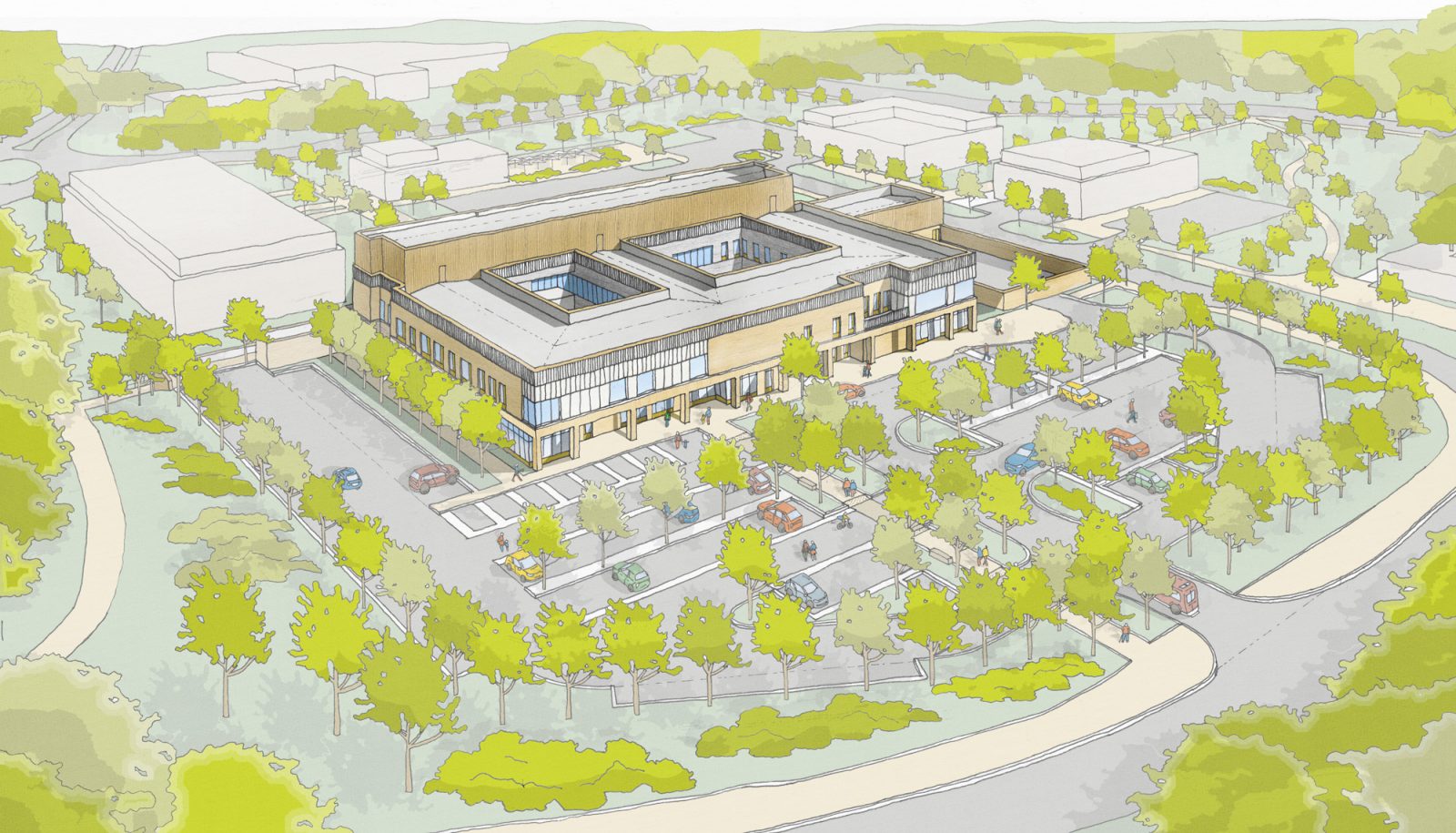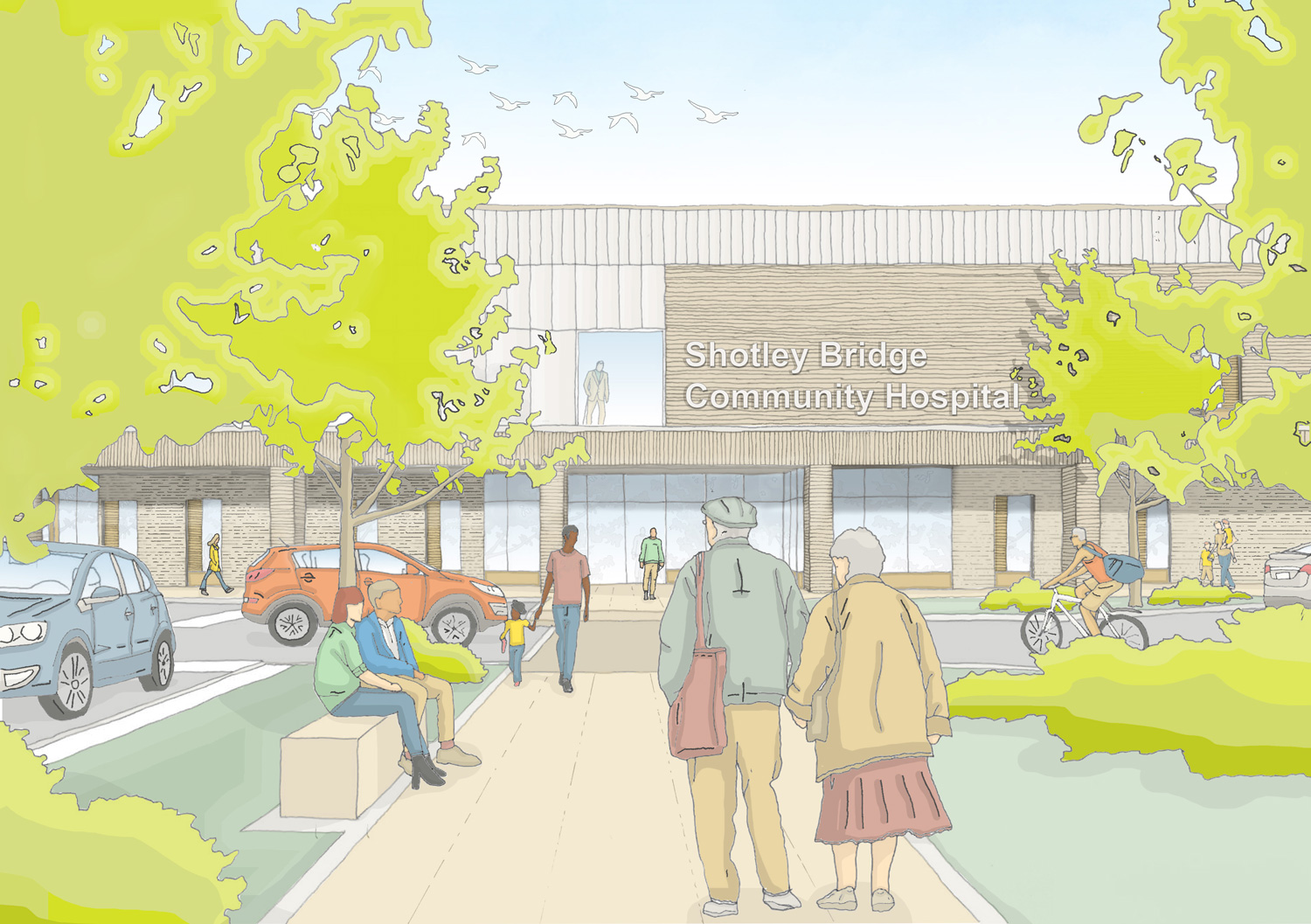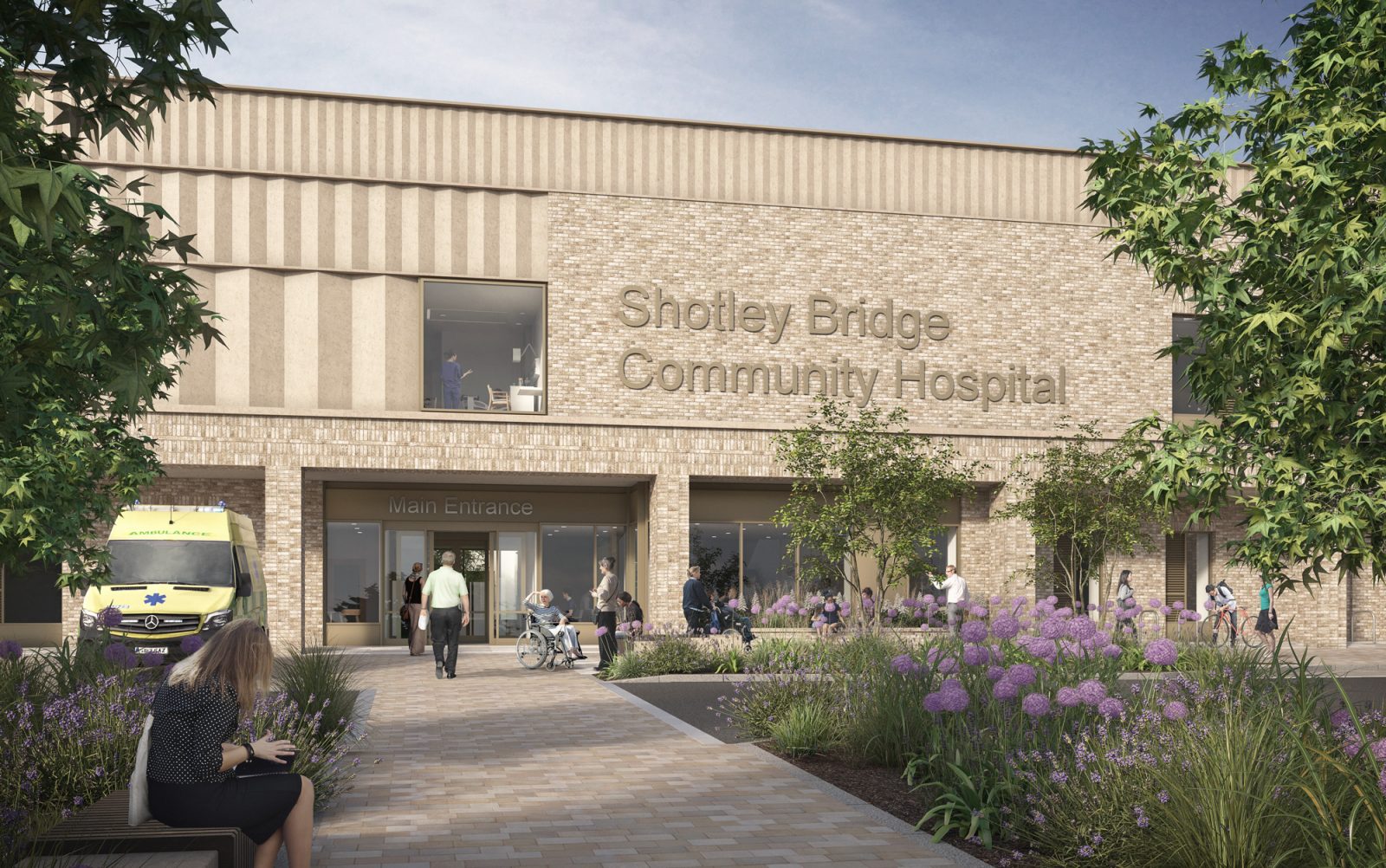Shotley Bridge Community Hospital plans approved
Our proposals for a new community hospital in Consett have been unanimously approved by Durham’s strategic planning committee. Employing a holistic approach to health and wellbeing, the building provides opportunities for patients and staff to connect with the outdoors and benefit from the therapeutic qualities of nature.

Arranged around two large, landscaped courtyards, the new hospital, which is in Cohort 2 of the New Hospitals Programme, will offer a range of facilities including outpatient services and diagnostics, an urgent care centre, a medical investigations unit for cancer services alongside a chemotherapy day unit, family health services, and a 16-bed rehabilitation inpatient ward. Sited on the edge of Consett at a gateway to the County Durham countryside, the hospital for County Durham and Darlington NHS Foundation Trust will be ideally located to deliver modern healthcare services to the growing local community.

An aerial sketch of the community hospital and surrounding landscape.
This is a very important milestone in this long-awaited development for the population of Derwentside, and the critical part this facility plays in the wider community healthcare infrastructure in County Durham.
A proactive approach to health through active travel
Encouraging sustainable means of transport, the site masterplan and hospital building have been designed to create a new pedestrian and cycle link which connects with the Coast-to-Coast cycle route that runs adjacent to the site, and a new footpath leading from the town centre.
A primary entrance at the front of the building provides access to the inpatient ward and outpatient departments. A pedestrian entrance on the opposite side connects directly with the new proposed footpath. These are connected by a central public concourse through the building with a public café and clear wayfinding to all facilities.

The building and its landscaping strategy promote biophilic interactions.
Promoting wellbeing through connections to nature
A simple plan, arranged around a pair of courtyards, brings natural daylight deep into the heart of the building and offers almost all occupied rooms an outside view. The courtyard spaces, with landscape design by ONE Environments, feature planting which is rich in texture, form and colour, and have been designed with unique characters for different purposes. The ‘Serenity Garden’ is accessible to visitors, patients, and staff, and features a mixture of open and semi-private seating spaces so people can rest comfortably with family and friends. The ‘Healing Garden’ has been developed in collaboration with the clinical staff as a private, therapeutic space available to patients and staff to aid and assist rehabilitation.
Internally, biophilic design principles create an uplifting and non-institutional healthcare environment by providing direct and indirect connections to nature. As well as benefiting patients, this also promotes wellbeing in the workplace and supports a positive culture of care.
Our team and the project’s design partners have worked hard to develop a scheme that will benefit the local community, providing an enhanced environment for both patients and staff.

A colonnaded canopy on either side of the building breaks down the scale of the building and mediates the transition from the car park and the new proposed public footpath.
Providing civic presence at a human-scale
The hospital is designed as a recognisable civic building befitting the status of a community hospital. Sitting at the entrance of a wider site masterplan envisioned as a parkland, the idea of a ‘pavilion in the park’ was a key design concept for the new hospital. This is reflected in the human-scale building form, careful composition of a simple material palette, and a landscaping strategy that promotes biophilic interactions and a harmonious relationship with the site’s context.
County Durham is well known historically for the use of sandstone for important civic buildings. Its warm tones, soft hues, and enduring qualities, convey a reassuring sense of permanence. To draw on this, the predominant external cladding material is a textured, ‘multi’ light buff brick that is robust and has similar visual qualities to the local sandstone architecture. In addition, bandings of profiled glass-reinforced concrete panels are introduced to emulate the texture and solidity of stone in a crafted form. An undulating, perforated metal rainscreen is proposed as a crown to the top storey of the building, paying homage to the historic significance of the site as part of the former Consett Steelworks.
The planning approval is excellent news and follows a significant amount of work and positive engagement from all involved stakeholders, including Project Genesis Limited, technical and planning advisors DPP, Medical Architecture and Tilbury Douglas.
A long-term approach to sustainability
The hospital has been designed to achieve BREEAM ‘Excellent’ and adopts the NHS’s Net Zero Carbon standards as a guiding principle. The facility is designed to be enduring, with the flexibility and adaptability to ensure the hospital can accommodate changing models of care and service delivery. Principles of standardisation and repeatability have been adopted to optimise efficiencies and ensure future adaptability in the building layout.
The project is also committed to utilizing modern methods of construction (MMC). Working alongside MMC consultants, Akerlof, the design team has adopted a framework of core principles, which include design for manufacture and assembly, and the use of prefabricated systems and offsite manufactured components.
We have designed a building that is welcoming to all and that creates an environment for care that promotes wellbeing and recovery. We are now looking forward to making the plans a reality.